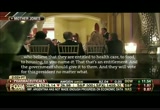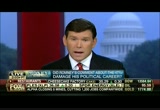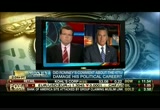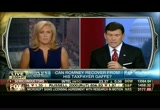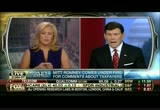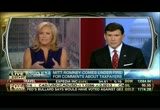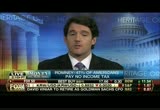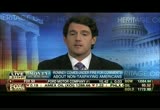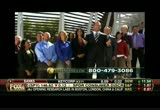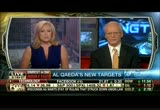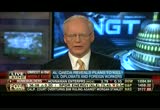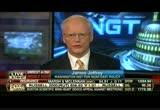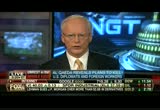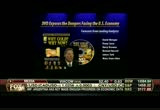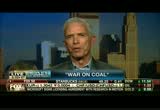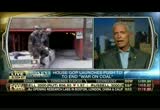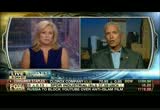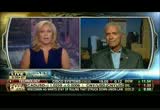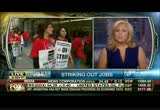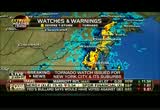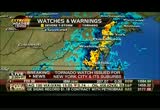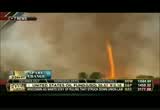tv MONEY With Melissa Francis FOX Business September 18, 2012 5:00pm-6:00pm EDT
5:00 pm
are pretty much a better gauge of housing market trends. economists are expecting a rise of 1.8%. remember we got a good homebuilder number sentiment today. could be better. david: we started with housing and jim dunigan, saying that will be the foundation which we build good economic growth and we end with housing. liz: "money" with melissa francis is next. melissa: i'm melissa francis of the here is what is among any tonight. a hidden video of mitt romney turns the entire presidential campaign on its head. he is under fire for the 47% of americans he says are dependent on the government. is what he said actually not true? we're going to crunch those numbers. plus al qaeda's new strategy to wreak havoc in the middle east the terror network sets his sights on u.s. diplomats and foreign workers. can it bring foreign business and the global economy to a screeching halt? we'll get insight from former ambassador to iraq, jails jeffrey.
5:01 pm
the teachers strike already has the windy city in disarray. it could deal a major profor the september jobs report. why the white house is bracing for impact. we have the details. even when they say it is not it is always about "money". melissa: all right. first let's look at the day's market headlines. stocks moved between positive and negative territory throughout the day's session. homebuilders confidence rose to its highest level in six years. according to the national association of homebuilders. the news gave a slight boost to stocks. the dow closed up 11 points. oil prices tumbling for a second straight day. crude settled down nearly 1 1/2% on ununexpected rise in inventories. there is no confirmed explanation for yesterday's unexpected dive that left
5:02 pm
traders baffled. fedex primarily blaming a slowdown in the slowing economy and competition from ocean-based shipping. >> 47% of the people who will vet for president obama no matter what. there are 47% who are with him, depernd end on him. who believe they're victims. who believe the government has responsibility to care for them. who believe they're entitled to health care, to food, to housing to you name it. melissa: so that was the video that everybody was talking about today. gop presidential candidate mitt romney says that 47% of the country feels that they're entitled to free food, housing and healthcare. and no matter what they're call going to vote for president obama. the media and opponents are hammering romney right as he is launching a major refocus on the economy but did his economic message with voters just self-destruction? let's turn to an expert. bret baier, anchor of "special report" on fox news network. thanks for coming over to
5:03 pm
talk to us. i know you're getting ready for your own show. how devastating do you think this was? >> well, i think we'll have to wait and see is the easy answer but i'll say this. it was not the best phrasing of this answer. it was a private video. if he was trying to get to the point that he is not going to get a lot of the voters that are already in president obama's camp, the 47%, that's what he is saying today when asked about it, that he was trying to say. the additional words that he used about entitlement, about victimhood, about, about feeling like they need to, that they can't provide for themselves, that really is not a great way to attract voters. now, the, that said the campaign is signaling that they're ready to fight on this bigger issue which is, fighting, redistribution and the government that they say
5:04 pm
is heading towards europe and greece. melissa: yeah. i mean it was the use of that word victims i think was probably the most problematic. it reminded you of that moment in the obama campaign when they said, when he said, clinging to guns and religion. you know it is kind of phrasing that echoes for a while to come. i want to play for you the response he gave to neil cavuto to try to spin it in the other direction, get your reaction on the other side. take a listen. >> i believe the right course for america where government steps in to help those that are in need. we're a cam passionate people. let people build their own lives, create free people and free enterprise, not redistribution. the right course for america is create growth, and create wealth, not to redistribute wealth. melissa: does that help? >> we, he is trying to redirect the attack to president obama conveniently, drudge report had an audiotape from october of 1998 do of then barack obama
5:05 pm
speaking in loyola university and speaking about the government and how he did believe in redistribution. and that surfaced and in that interview with neil, governor romney referenced that audiotape twice. i haven't heard the whole context of barack obama's speech there. so i can't tell you whether it's totally in context but i can tell you that the campaign is clearly trying to grab onto this fight of big picture, fighting to try to keep the country from going over the edge. now this has resonance. the national debt and deficit is a big issue that plays a lot of places. but what was said on that tape, melissa, i think hurts because it's a gaffe that plays to a stereotype. melissa: right. >> that the obama campaign
5:06 pm
already hit home with these ads, whether you believed them or not, against bain capital and that he is a corporate raider, they played again and again in ohio, iowa and other battleground. this will build on to that. melissa: does it? you have followed this campaign, both campaigns so closely you know so well exact voters in question on the fence here. does this push them to one side or the other? >> you know, that's, i don't know. i don't know. right now it looks like the bounce from the democratic convention is subsiding the gallup daily tracking poll has come down. it is now one point. the rasmussen poll is one point. we're seeing battleground states really get tight even after other polls suggested it was widening right after the democratic convention. most times you think something like this would roll off a candidate. mitt romney is a little different in that, he has some of this image of being,
5:07 pm
the millionaire and already painted as somebody who doesn't care about the little guy. so they will try to capitalize on that. whether it sticks or not is a big question. melissa: there is argument i heard made today, what you said is out there. that people who think that he is capitalist vulture, that he is private equity villain, this plays to them but they already didn't like him. is it, you know, whether this is in poor taste, is it red meat for the base? is there any way it works in his favor as distasteful as that might be? >> definitely. i heard conservative corners say, we want to hear more of this. we want to hear mitt unplugged more. the cadence and the way he delivered it and his plainspoken way that he kind of talked about that. that's what the base would love it hear. it's just not, you wonder about the five to 10% he is actually talking about in that video. the independents, and how they would react in a place like ohio, that he really
5:08 pm
needs. melissa: bret baier, thank you so much. i know you're getting ready for your own show and we appreciate you stopping by. >> all right. melissa: here's our question of the day. can mitt romney get his economic message back on track with voters after his hidden video debacle? we want to hear what you think. like us on facebook at facebook.com/melissafrancisfox. or follow me on twitter at melissaafrancis. mitt romney's comments may be causing uproar but is there more truth to the numbers that many critics are letting on? here to crunch the numbers, curtis dubai, senior tax policy analyst at the heritage foundation. we're not looking at the political impact. i want to look just at the numbers. starting with 47% that don't pay taxes, we're talking about federal tax, right, federal income tax? >> right, 47% of all federal tax-filers have no federal income tax liability. that number is much too large. it is much too large because the economy is so weak for a
5:09 pm
number of years now. if you want to get the number down we need a stronger economy with more people earning and more income. it will come down when that happens. long term trend growing toward 50% for a long time beside the weak economy. melissa: a lot of people make the argument the reason why 47% of people are not paying federal income taxes because they don't make enough money to qualify. to say they're on the dole because they don't have a lot of money, income? >> some certainly don't earn a whole lot of money. some earn, have no mcs. if you're going to pay income tax there is no reason why you wouldn't exempt some level of income but you're going to design it, you wouldn't exempt almost half of all income earned from the tax. it is too high. it has been too high for a long time. it has been growing towards 50% for a long time now. melissa: one of the points we're looking at on the screen right now that 28.3% of those folks pay payroll tax. not like they're paying no tax whatsoever. they do pay payroll tax. >> right.
5:10 pm
they do pay payroll tax. but the federal income tax fund things like national defense, homeland security, the fbi, the judicial system, national parks, welfare programs. they're not paying in any anything into those services that we traditionally think the government is providing aside from retirement programs like social security and medicare. they have no skin in the game when it comes to increasing spending on programs. they have no reason to push back when people here in washington want to expand those programs. what is happening is, spending is growing. the government is growing and dependency on government is growing as a result. this has two major problems. one the government's finances. we can't afford to keep spending like this. more importantly, it is bad for people, bad for individuals. it erodes human dignity. we should not want people dependent on government. we want them independent. we want them to lead meingful, purposeful lives and big government prevents that in many way. >> from a numbers standpoint if you have 47% of the population that isn't paying
5:11 pm
federal income tax, if you make an appeal to them we need to lower federal income tax it will not appeal to them because they're not paying any tax. do you believe that argument? >> well again, remember they are paying payroll taxes and they are paying other taxes at state and local level. what we need is tax reform so that people have some skin in the game when the it comes to paying for federal, for these federal programs i've been talking about. doesn't mean we raise the taxes. we fold the payroll tax into the federal income tax so they have skin in the game when it comes to paying for programs and paying for entitlements. melissa: thank you for coming on. we appreciate your time. >> thank you. melissa: al qaeda unveils a new tactic to fuel middle east chaos. kill middle east diplomats and target foreign workers. will this bring investment and business to a stand snil? -- stand still? we'll have james jeffries next. the country's most powerful wind energy group
5:12 pm
ex-peltz one of the nation's biggest energy producers. its ceo joins us to explain why. we have more more "money" coming up. [ male announcer ] wouldn't it be nice if there was an easier, less expensive option than a traditional lawyer? at legalzoom you get personalized services for your family and your business that's 100% guaranteed. so go to legalzoom.com today for personalized, affordable legal protection.
5:13 pm
these are sandra's "homemade" yummy, scrumptious bars. hmm? i just wanted you to eat more fiber. chewy, oatie, gooeyness... and fraudulence. i'm in deep, babe. you certainly are. [ male announcer ] fiber one. monarch of marketing analysis. with the ability to improve roi through seo all by cob. and you...rent from national. because only national lets you choose any car in the aisle... and go. you can even take a full-size or above, and still pay the mid-size price. i'm going b-i-g. [ male announcer ] good choice business pro. good choice. go national. go like a pro.
5:16 pm
melissa: tour moyle in the middle east hitting a fever pitch with anti-u.s. protests spreading. al qaeda revealing plans today to kill u.s. diplomats and foreign workers. can the terror group bring a freeze to u.s. business and political activity across the region? for insight i'm joined by james jeffrey, former u.s. ambassador to iraq and turkey. thanks for joining us. let me ask you right out of the gate. how serious do you think this threat is? >> first of all it is good to be back. this like all threats have to be taken seriously. al qaeda repeatedly threatened diplomats and american business community throughout the middle east. before and after 9/11, al qaeda was far more successful attacking such interests be it our embassies in eastern africa, be it business establishments in saudi arabia than they have been in the last few years. so we'll watch this closely but i don't think it will
5:17 pm
have any immediate effect. melissa: you don't think it was more serious? we had an ambassador, diplomat first time in 20 years. seemses like whether they have been threating or not, it seems like they're more successful in the last week? >> that was offshoot group tied to al qaeda but i wouldn't is that was an al qaeda planned operation at this point. the fbi is looking into it. we have to wait the findings there. we have embassy attacks and consulate attacks fairly frequently in the middle east. most of the time they're kept under control by the local authorities. this time despite the efforts of the libyan authorities they were not. melissa: so you don't think that embassies should slow down, take extra precaution, remove people from the area, do anything differently than they have been doing in the face of both this violence and these threats? >> i didn't say that what i meant was, that you do depending on the level of threat, depending upon the situation, tailor your
5:18 pm
security posture, you tailor the number of people you have, you tailor, if you will, the extracurricular peripheral activities. but the basic job of american diplomats in the region is to represent the united states, to advance business and security interests. they will be out there doing that, regardless of the level of threat. they will just be more careful. melissa: we had a guest on yesterday saying international companies will pull back, having their people out in regions where they are receiving these threats. it seems like it is the smart thing to do. now you have al qaeda saying that they are focusing on threatening companies internationally as well and their personnel. do you think this poses a threat to international business, and in fact the global economy? >> first of all, not to the global economy. in the terms of american business interests, each company must, based upon its own legal and insurance policies, take care with its own employees, particularly when there are threats out there like that.
5:19 pm
each company has its own polly, melissa. again, i do not think this will have to long-term, significant impact we can measure on either the american business posture in the middle east or on the global economy. melissa: you are somebody who has, pretty much unique experience out there in the exact areas that we're talking about, facing these threats. what do you think is the appropriate response from the united states at this point? >> thank you very much. we have very, very important interests there, beginning with oil, business interests, security interests, friends and allies. turkey is real. the gulf states, jordan, iraq an on. we must remain in the region. we must combat these people. these people do not represent the majority of folks in the middle east. we have to keep that in mind. and while taking precautions we have to continue to engage and i am absolutely convinced that we will. melissa: let me ask you before we go. i can see that from, you know, an embassy point of view. do you think for corporations, what do you think is appropriate
5:20 pm
response for them? >> well each corporation should first of all be in close touch with the local u.s. embassy and consulate and also take a look at the state department travel advisories that put out and reflect the best knowledge we have of a security situation in a given country or region. secondly, they have to insure their people are well-trained and well-briefed what are proper security procedures. most companies that i have dealt with, for example, in iraq but also elsewhere in the middle east do have good security teams who should be listened to and adhered to. melissa: they have to protect their employees first. james jeffrey, thanks for joining us. >> thank you, melissa. melissa: fighting overtax credit intensifies. why has the nation's biggest wind energy group kicked out one of their largest energy producers in the u.s.? its ceo joins us next. plus the chicago teachers walk out, could trap pell the critical september jobs report. we're going to explain coming up. do you ever have too much money?
5:22 pm
5:23 pm
a body at rest tends to stay at rest... while a body in motion tends to stay in motion. staying active can actually ease arthritis sympto. but if you have arthritis, staying active can be difficult. prescription celebrex can help relieve arthritis pain so your body can stay in motion. because just one 200mg celebrex a day can provide 24 hour relief for many with arthritis pain an inflammation. plus, in clinical studies, celebrex is proven to improve daily physical function so moving is easier. celebrex can be taken with or without food. and it's not a narcotic. you and your doctor should balance the benets with theisks. all prescription nsaids, like celebrex, ibuprofen, naproxen, and meloxicam have the same cardiovascular warning. they all may increase the chance of heart attack or stroke, which can lead to death.
5:24 pm
this chance increases if you have heart disease risk factors suh as high blood pressure or when nsaids are taken for long periods. nsaids, including celebrex, increase the chance of serious skin or allergic reactions or stomach a intestine problems, such as bleeding and cers, which can occur without warning and may cause death. patients also taking aspirin and the eldey are at incrsed risk for stoch bleeding and ulcers. do not take celebrex if you've had an asthma attack, hives, or other allergies to aspirin, nsaids or sulfonamides. get help rightway if you have swelng of the face or throat, or trouble breathing. tell your doctor your medical history and find an arthritis treatment for you. visit celebrex.com and ask your doctor about celebrex. for a body in motion.
5:25 pm
♪ . melissa: last week the american wind energy association gave the boot to energy giant excelon corporation. excelon is pushing hard to kill a tax credit the wind industry claims is crucial to its survival. we had on tom pyle, the head of the american energy alliance of the he sided with excelon. take a listen what he had to say. >> the organization is about getting federal bucks as opposed to positioning wind in the best possible light. melissa: is pyle right? is the wind energy tax credit just distorting the market. with me to respond is the american wind energy association ceo. thank you so much for coming
5:26 pm
on. i want you to go ahead and right away and respond to those arguments. what do you think?. >> thank you so much, melissa. if i could take my wind hat on and put my hat on as a former public utility regulator, let me tell you the story, what's going on out in the market. there is intense competition in the market and on the grid and that is driving down consumer prices for electricity. what is happened is, in fact there has been two new major additions to electricity generation in the last five years. natural gas is adding 45% of all new generation. melissa: right. >> wind is adding about 35%. when you look at, new transmission being built there is some being built but in some areas, there is an overload of expensive inflexible generation. mostly nuclear and coal. and they have to run all the time. they can't scale up or scale
5:27 pm
down. so --. melissa: i don't know if i buy that. there is an overload of expensive energy that is coming from nukes? when you look at the price per kilowatt-hour, and we have this, our brain room crunched this for us, this is from the department of energy. you can see that natural gas is just by far the cheapest. it goes for about 6.6 cents per kilowatt-hour. that is versus wind which they had at 9.6 cents per kilowatt-hour. i'm not sure if that includes subsidies. even though 50% more than natural gas still seems low. coal is up there with wind by this calculation. seems like real problem natural gas is very, very cheap and cheaper than everything else. that is wind's problem. >> well i don't think that is true. i think what's happened, you know, you've got new, flexible, affordable generation coming on like natural gas and wind, and you've got very inflexible generation that has to run all the time. can't scale up and down to meet the new competition that is out there in the marketplace. consumers are benefiting
5:28 pm
tremendously by much lower electric prices just when we need those prices down. and the concern is, by some of the utilities, is that their not being able to make as much from consumers on their inflexible generation. melissa: but wind -- >> that is great deal tore consumers. melissa: wind is not cheap. it is 50% more. it is getting massive subsidy from the government been in place 20 years. if it is so cheap, if it is so cheap why are we subsidizing. if your point is correct, i'm not even yielding, if it is so cheap why in the world would you want a subsidy? let's get rid of the subsidy. >> first of all the number you're looking at is an old number. actually is lower than that. and. melissa: even better. definitely shouldn't have the subsidy. if it is even cheaper than that you don't for sure you need the subsidy. >> let me explain what happened. you made two statements let me respond to them. melissa: okay. >> the first one is the
5:29 pm
misperception that we've had this for 20 years. the only, in the last five years have we had the tax incentive. we only have one. that is only allows us to get a tax, keep more of our tax dollars when we're producing electricity. in the last five years we have been able to scale up from over only 20% of our manufactured parts here in the u.s. to now over, almost 70% is made in america. prior to that, every other year we would have to justify the extension of the credit. it provided no certainty for manufacturers to come here. melissa: imgoing to ask you one more time, if it is so cheap why do you need a subsidy? >> i'm getting there, i'm trying to explain to you, what brought down the cost of electricity in the last five years from wind is insourcing new manufacturing is lowered the cost 18 to 20% but we still have to continue that pace, for a couple years longer in order to scale up the
5:30 pm
manufacturing here for the manufacture you ares to have certainty to build here so we can actually move forward. melissa: you said there is influx of cheap power that is coming from wind. if we have too much cheap power from wind why would we put one more tax subsidy toward wind if it is so cheap? it has abundance of energy. >> i said becoming more affordable. you said more cheap. melissa: you said cheap energy on the grid that is cheaper than nuclear that continues to generate. that was your argument from the beginning if that's true we don't need a subsidy. >> that's not true. what i'm saying is that we have to scale up the manufacturing so that you can have a diversified portfolio of electricity, and all this benefits consumers. so we have got folks here complaining because consumers have low prices. so would you advocate reducing, increasing electric prices to consumers just at a time when we need to have lower electric prices to make it more affordable?
5:31 pm
no. you want to have this industry scale up, to become part of a diversified portfolio that you uses --. melissa: no, i want to deliver the cheapest possible energy to consumers who need a break right now in this economy and that is natural gas. if wind energy is as cheap as you said it was at the beginning of this segment, then it wouldn't need this subsidy. denise, i thank you for coming on. i think you argued both sides of argument. >> i think you did too. melissa: no, i didn't. wind is too expensive. you don't need it. you're the one said it was cheap and want to keep the subsidy anyway. >> i want to keep it long enough to get the manufacturing here so we don't need it anymore. so you've got a whole new manufacturing sector here in america that is delivering over 500 new manufacturing plants and over 30,000 new jobs. melissa: you know what? we'll go on commercialal an play back the tape from the beginning. thanks for coming on. thank you for coming on. casualties for embattled coal industry piling up higher.
5:32 pm
alpha natural rye sources slashing 800 jobs and closing eight mines. blaming in part new air regulations. congressman bill johnson says it is time to bring an end to what he calls the war on coal with his plan to stop it. what is the war on coal very specifically. >> i'm really frustrate grad from that last segment. tell me very specifically for what the is war on coal consist of. >> for what it is worth you won the battle. melissa: i will have to watch it back to see what happened. >> i think you won the.but the war on coal started before barack obama became president. he made it very clear in his campaign that he would make it economically unfeasible to start up or to operate coal-fired power plants. that is one promise he kept. melissa: by doing what? part of it has to do with the stream buffer zone rule. what is that and how does that attack coal. >> you bet. the stream buffer zone rule is rewrite of a rule that
5:33 pm
took the bush administration five years to put in place and talks about and sets parameters about which we do coal mining operations near a stream. the obama administration accepted and rolled over and environmental lawsuit and started immediately to rewrite that rule in such a way that is going to shut down virtually shut down, shut down underground coal mining in america, reduce production by up to 50% and cost thousands of jobs. and --. melissa: i don't know the science of it admittedly. i'm not an environmental scientist. is there a good reason for that? should there be a buffer zone out there? >> well the 2008 rule put a buffer zone out there. that's what it was called. it was called the stream buffer zone rule. and they never even implemented the 2008 rule to see what its effect would be before they started rewriting this rule. and when the contractor that they were working with released the numbers of the tremendous job loss and the
5:34 pm
resulting reduction in coal production, they basically fired that contractor because they wouldn't change the numbers. so it is absolutely a war on the coal industry. melissa: and the epa is joining in with air regulations that coal-fired plants as well as actions to classify coal ash as hazard does material but there are those actions justified by the epa? are they trying to protect the public? >> look everybody wants clean air and everybody wants clean water. we want to make sure it is done through science and fact but not through a political agenda or environmental extremist agenda. melissa: yeah. >> certainly, certainly there are ways to put reasonable regulations in place but the train wreck that, and the utility -- that shuts down coal-fired power plants, coal ash used in the manufacturing of bolling balls and
5:35 pm
concrete -- bowling balls and concrete. melissa: yeah. >> asphalt. that will cost america jobs and in an industry that we can't afford to lose those jobs. melissa: congressman, before i let you go, wind energy, cheap and abundant or was that the craziest segment you ever heard when you were waiting to come on? >> it was a pretty crazy segment. i was born and raised on the farm in my view wind produces energy when the wind blows. wind doesn't blow all the time. melissa: if what she said was true, i'm putting buy ant wind turbine on top of my apartment building. maybe put one on the car too. i don't know. thank you for coming in. we appreciate it. >> thank you, melissa. melissa: we're totally off the rails here. scrambling about the math on job growth. why the chicago teachers strike could send shockwaves through nationwide economic data. we have details on that coming up next. plus, how a female-only tire shop in texas is turning major profits against an industry giant. "piles of money" coming up.
5:38 pm
based on this chart, who would you choose ? wow. you guys take a minute. zon, hands down. i'm going to show you guys another chart. pretty obvious. i don't think color matters. pretty obvious. what'sretty obvious about it ? that verizon has the coverage. verin. verizon. we're going to go to another chart. it doesn't really matter how you present it. it doesn't matter how you present it. verizon. more 4g lte coverage than all other networks combined.
5:40 pm
melissa: chicago teachers strike on the verge of reaching far beyond the classroom. concerns are growing it could have significant impact for the september jobs report. how could one strike affect economic data across the country? >> for the answer we're turning to an economist and co-chair of the institute for research on labor and employment at the university of california, berkeley to explain. sylvia, thank you for joining us. 26,000 teachers striking. how does this work? they're part of the survey? >> seems they are part of the survey.
5:41 pm
that is what cnn reported. if in fact they're part of the survey which they are there are two points. one is the household survey, that's where we get the unemployment rate from. these striking teachers will not affect the unemployment rate. because they are, they have jobs. they're not working. that survey has a provision for those who are out on strike. now, it will affect the jobs numbers, the jobs numbers come from firm data. and that is the payroll data. so if they are not on payroll, which if they're striking they're not, then they will be netted out of the monthly jobs numbers. but remember, there will be temporary. melissa: right. but i mean, still, the way people follow that number, it comes out on a friday. it moves the markets. people are talking about it. they talk about it all weekend. >> sure. melissa: it is a big deal. 26,000 is a pretty big number. what kind of impact does that have on the overall number? >> that's the thing.
5:42 pm
if we look at overall number there are two big slices of the overall number. one is the private sector job growth. we've had 30 consecutive months of positive sector job growth. melissa: this isn't the private sector. >> that's right. that is the point. so the point is that this would be in the public sector. so even though it is temporary, we will have this blip, if this does happen. the more important part of the public sector is probably due to bring, to attention the fact that since the recovery took hold over three years ago there has been 670,000 jobs that have just disappeared in the public sector. so this is going to, these teachers would be added to those jobs numbers, those losses that are occurring month after month after month, even though again, it is going to be temporary because they would be taken off. when the strike is over they would be put back on but it does bring to light month after month after month, net jobs effect, we have to take off the losses in the government sector to date
5:43 pm
total 670,000. melissa: uh-huh. and, it's kind of ironic political outcome we would see the jobs number that president obama is fighting so hard to make better, you know for the better of the country and also for his re-election that we would see that number be diminished by a fight from one of his former friends and coastal lies who is now the mayor of chicago. i mean there is some irony in there. >> right. although, the mayor is not supporting the strike. melissa: no. >> he is against the strikers. but in the end again i think first of all, you know, it is the private sector seems to get more of the attention and although i think it is very important these losses in the public sector because they certainly have hampered the recovery efforts because you have a problem of unemployment. so to add to the unemployment lines, whatever, the political --. melissa: we do but the money to pay public sector employees comes from somewhere. it comes from taxpayers.
5:44 pm
it is money that would be spent conceivably in the private sector, which you said is more important? >> sure. melissa: if my tax dollars weren't so big and going to pay salaries of so many public workers i would be spending them at the mall, at restaurants, employing other people. it is kind of a zero-sum game. >> those are all good points. you know, we can always as taxpayers and citizens and voters have that discussion. the point is in a weak economy where the public sector is not creating jobs to the tune that we need, to put back those who lost jobs. melissa: the strike hurts. >> that's right. so to have this massive job loss and the public sector at this time is really hampering the recovery. look the cbo estimates show month after month, quarter after quarter these job losses and the declines in government spending shave off one to .2 of a percent of gdp it has a real effect. melissa: yeah, the strike is definitely hurting the economy. that we agree on.
5:45 pm
sylvia, thank you so much. appreciate your time. breaking weather news, for more on that. robert. >> that's right the national weather service issuing a tornado watch for the new york region here for the five burros of new york city and the -- borrows of new york city. the sun bushes as well. conditions are favorable for a possible twister. in effect for boortz parts of new york city, parts of jersey and lower hudson valley until 7:00 p.m. western parts of connecticut under a tornado watch until 11:00 p.m.. keep in mind, melissa we had two weeks ago touch down in new york city. one in queens and another one in brooklyn. back to you. melissa: robert gray. all right. thanks. all female texas tire business takes aim at an industry heavyweight. the owners join us next on how girl power is pumping up their bottom line. at the end of the day it is
5:47 pm
hey, bro. or engaging. conversations help us learn and grow. at wells fargo, we believe you can never underestimate the power of a conversation. it's this exchange of ideas that helps you move ahead with confidence. so when the conversation turns to your financial goals... turn to us. if you need anything else, let me know. [ female announcer ] wells fargo. together we'll go far.
5:49 pm
5:50 pm
group of tornados i guess it is threatening the new york area. we have the president in the area tonight as well. >> we do indeed. fund-raiser here in new york city. but the weather service, national weather service issuing a tornado watch for the entire new york region pretty much. new york city, all five boroughs and surrounding areas hire. we're looking at new york city, parts of new jersey, new york's lower hudson valley. a tornado watch is in effect until 7:00 p.m. melissa, meteorologists are saying no i amment threat of a tornado. conditions are favorable for a possible tornado. weather service issuing a watch for longer period of time of time, long island, westchester county, western parts of connecticut under a watch until 11:00 p.m. eastern time. you talk about twisters. a couple have been up to go down in new york city earlier this month. we had one out sort of on long island almost, in queens. we had another in brooklyn. melissa, definitely some
5:51 pm
wicked weather may be coming our way if you look at that map. you see already arrived in certain parts. melissa: definitely. you look out the window here, it looks bizarre outside. it has been dark and ominous all day. now we have the president in town. traffic will be fantastic. all right, on all fronts. robert gray. >> gearing up for the u.n. as well. a lot of traffic. melissa: general assembly, forget it. thank you so much. always comes back to me at the end of the day. am i going to be stuck in traffic today. >> subway. melissa: you're right. time with fun for spare change. we're joined by author and radio talk show goddess, monica crowley. our very own god adam shapiro. >> i never have been on mount olympus. melissa: that's right. first up it is a legal victory fit for a future queen. a french judge is ordering the publisher of closer, a french gossip magazine to hand over all copies of the topless photos like these of
5:52 pm
the really? of kate middleton. the judge blocked the pictures from being published. was this unlawful breach of their prince william's privacy? is the cat out of the bag here? >> is the point in this day and age. one photo can travel the world in 10 seconds. so many photos were on the internet for a long time. an italian magazine will publish some of these picktures. the can is out of the bag. when you are going to be the future queen, married to the future king --. melissa: maybe keep your top on? >> unfortunately that is the case. do i think this was a breach of privacy? yes. you have to understand in this world with telephoto lenses and everybody's got a cell phone camera, privacy doesn't really exist. melissa: topless photos of adam are all over the internet. >> i'm not even going to touch that. melissa: that is really bad. speaking from personal experience, what advice do you give her. >> i don't know what to say about this.
5:53 pm
first of all i don't know what french law says about this kind of thing. clearly in the united states anything goes. england, but i don't know what the french law is england there are privacy laws for publication. >> they will go after the magazines. melissa: what they're really saying is, don't mess with us. we're going to be very serious. we're going to crack down on these things, the sending message the royal family. what about your photos that are out there? okay. >> you live a block away. do you want to see them? we'll go running in central block. melissa: we live ablock apart here in new york. >> we'll scare the children. melissa: we'll move right on from that. take a look at this. we were talking about tornados. this is a fire tornado in the australian outback. how terrifying is that? they happen when a disproportionately hot patch of ground sends up a plume of heat into the air. the source of heat comes from hot spots in preexisting wildfires. on average they extend 100
5:54 pm
feet in the area and rotate to 22 miles an hour. but they usually disappear within a minute of shooting up. so we were just making sort of a beg deal out of the tornados that are possibly coming to new york city. then australia shows up and just shuts us down of the look, babies. quit your yapping. it could be much worse. what do you think about that. >> i think it is a pretty cool. it is a natural phenomena. new yorkers would say, okay, next. melissa: really? what's that? oh, my gosh. >> 2008 when we had the heat wave and manhole covers were all exploding. >> really? >> over at wnbc there was a joke --. melissa: i'm not familiar with that station. what are you talking about. >> this place across the street. melissa: oh. >> the manhole cover blew up and there was a big joke on the internet. melissa: this is such a bizarre natural phenomenon. this is like we're not in kansas sass anymore. this is fire tornado. >> never heard of that. >> i never either. there are all these bizarre
5:55 pm
weather-related. melissa: there is lots of things we never heard of basically. okay. up next when a 69-year-old nevada resident passed away, he just had $200 in his bank account. get this. authorities discovered he had a secret treasure stashed stored neatly in his home. to be exact he had $7 million worth of gold. he reportedly was a recluse who hated the government. >> you think. melissa: authorities found him a month after he passed away. yikes! of course, irs will take 750 grand. the rest will go to the only relative the man had, a first cousin. this is one of those gold people. federal reserve. look monica is bursting. >> i'm dying to know the lineage here. are we related in any way? melissa: adam can talk about the wisdom of gold. >> wisdom of gold inflation. my dad used to say, people buy gold because they're worried about the end of the world coming you would be better off buying canned food and a gun. you don't want gold.
5:56 pm
if this guy was worried about the end of the world he didn't last as long as the world. melissa: he was worried about us turning into greece, come on. >> remember he is started buying gold when it was 35 bucks an ounce. it is only been, only been over $800 --. melissa: he knew ben bernanke cast coming. >> if he knew ben bernanke was coming he should have known at the age of 69 he should have cashed out. all i'm saying. you were doing better talking about me and being shirtless. melissa: let's have monica have a crack at it. >> we hear stories of somebody a nondescript person with very few friends and very little family. every once in a while they pass away with a $20 million fortune. >> i would like a friend like that. get a relative. melissa: all the "money" we have for you. thanks for scrambling out here tonight. "the willis report" is coming up next
168 Views
IN COLLECTIONS
FOX Business Television Archive
Television Archive  Television Archive News Search Service
Television Archive News Search Service 
Uploaded by TV Archive on

 Live Music Archive
Live Music Archive Librivox Free Audio
Librivox Free Audio Metropolitan Museum
Metropolitan Museum Cleveland Museum of Art
Cleveland Museum of Art Internet Arcade
Internet Arcade Console Living Room
Console Living Room Books to Borrow
Books to Borrow Open Library
Open Library TV News
TV News Understanding 9/11
Understanding 9/11

